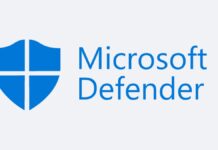NVIDIA has recently made headlines with the inauguration of Denmark’s most powerful AI supercomputer, a significant leap in the country’s technological landscape. This new supercomputer, named Gefion, was launched by Jensen Huang, the founder and CEO of NVIDIA, in collaboration with the Danish monarchy, marking a pivotal moment for Denmark’s ambition in AI and supercomputing. Named after a Norse goddess, Gefion is poised to revolutionize various sectors including quantum computing, clean energy, and biotechnology, offering a wealth of potential benefits for both Danish society and the global community.
Gefion operates on the NVIDIA DGX SuperPOD architecture, a sophisticated system that is powered by 1,528 NVIDIA H100 Tensor Core GPUs. These GPUs are interconnected using NVIDIA Quantum-2 InfiniBand networking, a high-performance network technology that significantly enhances the data transfer speed between the GPUs. This setup not only provides immense computational power but also ensures efficient data handling, making Gefion one of the fastest AI supercomputers in existence.
The operation of Gefion is managed by the Danish Center for AI Innovation (DCAI), an organization funded by the Novo Nordisk Foundation and the Export and Investment Fund of Denmark. The Novo Nordisk Foundation is renowned as the world’s wealthiest charitable foundation, and its involvement underscores the significance and potential impact of this project. At the launch event held in Copenhagen, King Frederik X of Denmark, alongside Jensen Huang and Nadia Carlsten, CEO of DCAI, symbolically powered on the supercomputer, marking the beginning of a new era in Danish technological prowess.
The collaboration between Jensen Huang and Nadia Carlsten is particularly noteworthy. Carlsten, a leading figure in the quantum computing industry, discussed with Jensen the public-private initiative that has made Gefion a reality. This initiative is a testament to Denmark’s commitment to developing one of the world’s fastest AI supercomputers, a move that is expected to foster advancements across various industries, startups, and academic institutions in Copenhagen.
Jensen Huang described Gefion as a “factory of intelligence,” highlighting its potential to generate insights and solutions that were previously unattainable. He elaborated that this marks the inception of a new industry that operates atop the existing IT landscape, creating something fundamentally innovative. The launch of Gefion is a significant step for Denmark in establishing its own sovereign AI capabilities, which implies the ability for a nation to produce artificial intelligence using its own resources such as data, workforce, and infrastructure.
In today’s world, having such infrastructure is as crucial as having robust systems in communications, transportation, and healthcare. For Denmark, joining the select group of countries with this capability is a remarkable achievement. The new supercomputer is expected to tackle global challenges, providing insights into various critical areas such as infectious diseases, climate change, and food security. As Gefion prepares for operational use, a pilot phase will commence, inviting projects aimed at leveraging AI to accelerate advancements, specifically in quantum computing, drug discovery, and energy efficiency.
The potential of Gefion in drug discovery, for example, is immense. Jensen Huang expressed his hope that computer-aided drug discovery will become a reality within the decade, akin to the transformative impact computers have had on the technology industry. This could lead to significant breakthroughs in digital biology and healthcare.
Supporting the next generation of technological breakthroughs, Gefion is already involved in various pilot projects. The Danish Meteorological Institute (DMI) aims to utilize the supercomputer to provide faster and more accurate weather forecasts, significantly reducing the time and energy required compared to traditional methods. This advancement could prove invaluable in mitigating the impacts of severe weather events and climate change.
Researchers from the University of Copenhagen are exploring the potential of Gefion in quantum computing simulations. By increasing the simulated system from 36 to 40 entangled qubits, they are approaching a milestone known as “quantum supremacy,” where a quantum computer outperforms traditional computing methods while using fewer resources.
Furthermore, a collaborative effort involving the University of Copenhagen, the Technical University of Denmark, Novo Nordisk, and Novonesis is underway. They are working on a multi-modal genomic foundation model aimed at advancing disease mutation analysis and vaccine design. Through Gefion, they can train large language models to enhance the understanding of genomes, thus improving signal detection and functional analysis.
Startups are also eyeing Gefion’s capabilities. Go Autonomous, for instance, seeks to train an AI model capable of processing multi-modal inputs, such as text, layout, and images. Another startup, Teton, is utilizing Gefion to develop an AI Care Companion through large-scale video pretraining.
Gefion’s contribution to addressing global challenges extends beyond local applications. Denmark, known for its strong research community, is now better positioned to tackle some of the world’s most pressing scientific issues. The collaboration with NVIDIA offers opportunities to co-develop solutions in complex fields including pharmaceuticals, biotechnology, and protein design, leveraging platforms such as NVIDIA BioNeMo.
Moreover, scientists are collaborating with NVIDIA on advancements in fault-tolerant quantum computing, utilizing NVIDIA CUDA-Q, an open-source hybrid quantum computing platform. This collaboration is expected to yield innovative solutions and contribute significantly to the field of quantum computing, potentially leading to breakthroughs that could transform industries reliant on complex computations.
In conclusion, the launch of the Gefion supercomputer is a landmark achievement for Denmark, placing the nation at the forefront of AI and supercomputing technology. With its immense computational power and the strategic collaborations it facilitates, Gefion is set to drive significant advancements across various sectors, addressing global challenges and fostering innovation. The future looks promising as Denmark harnesses the potential of AI to not only benefit its own society but also contribute to the global community. For more information, you can refer to the original announcement at NVIDIA’s official website.
For more Information, Refer to this article.

































